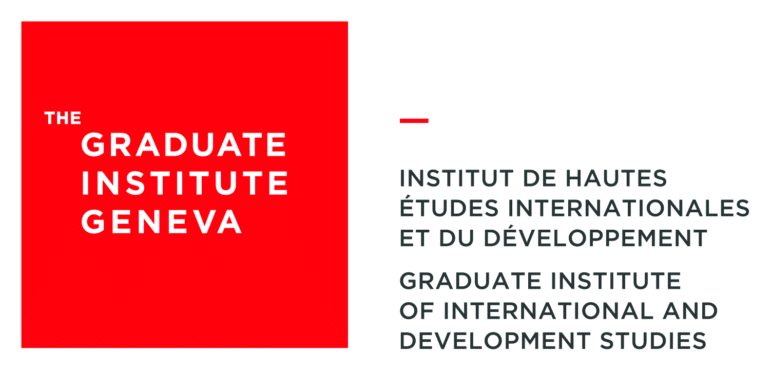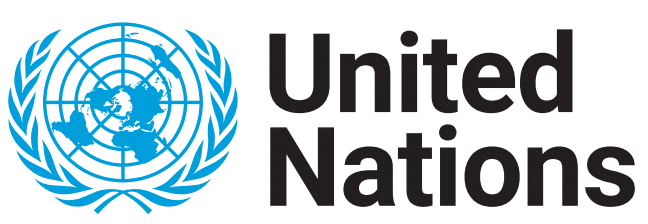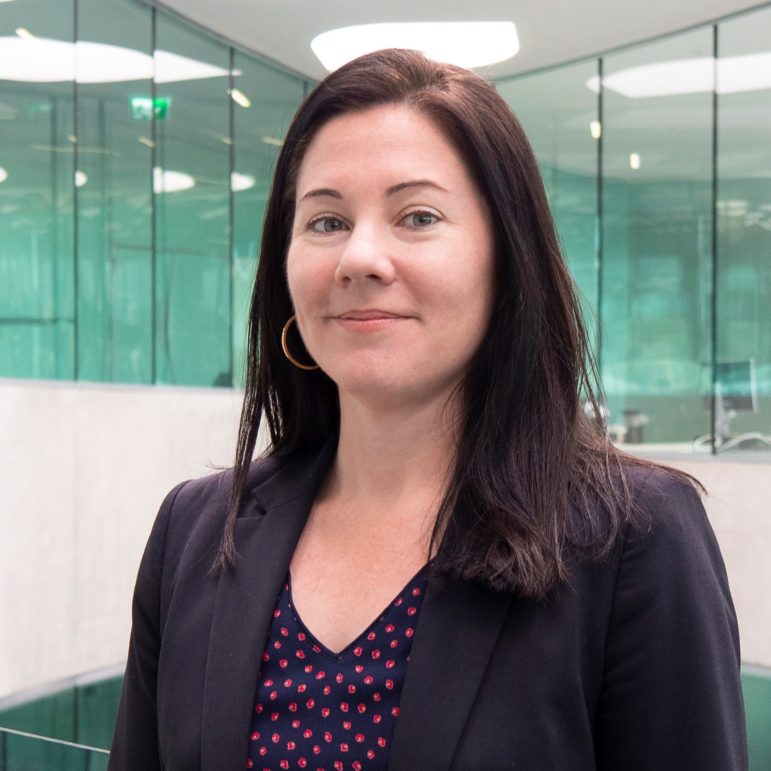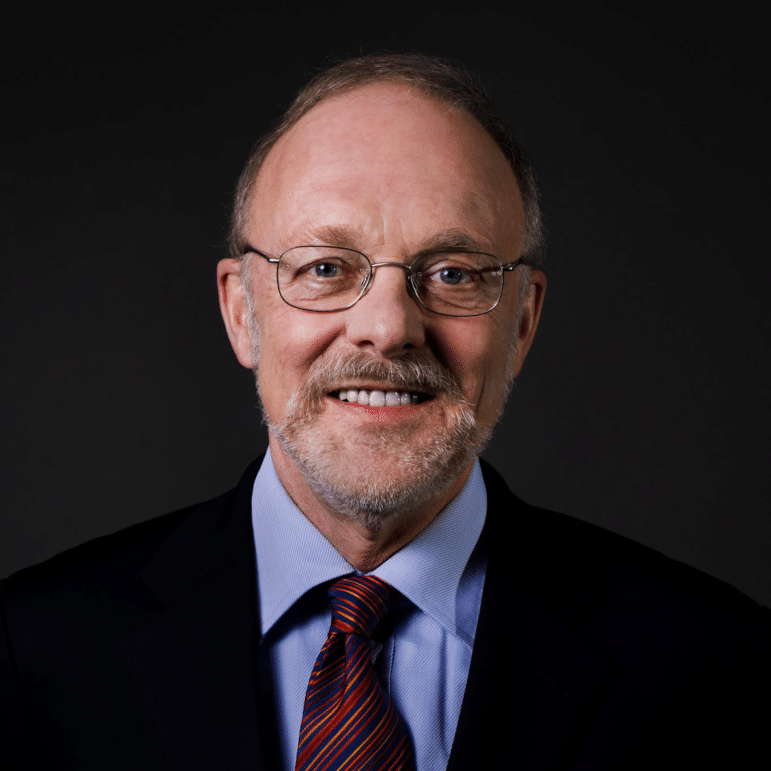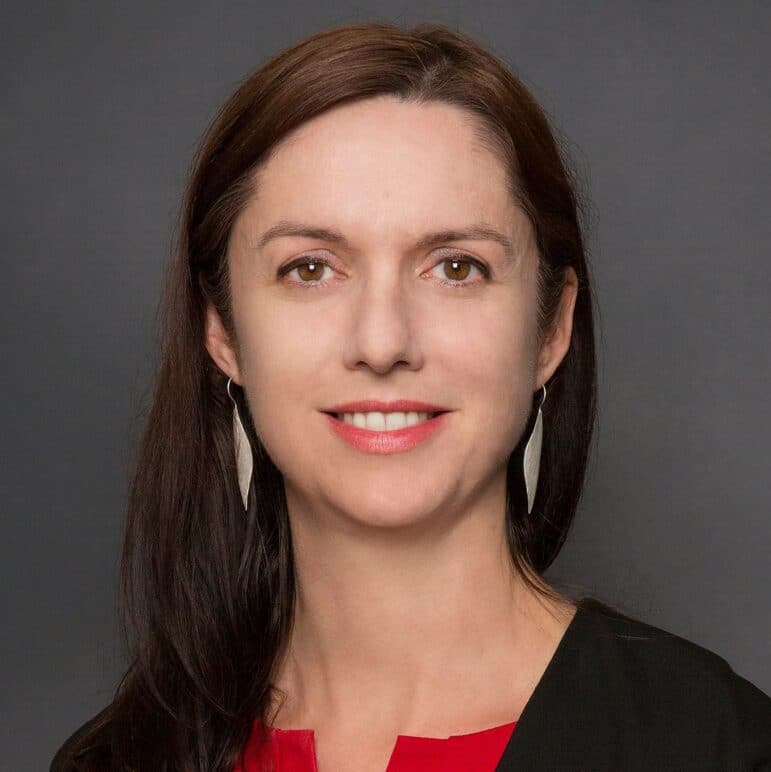Evidence-Based Solutions for Intensifying Global Challenges
Geneva, Switzerland | Thursday-Saturday, 23-25 June 2022
Thank You to All Conference Participants
The ACUNS Annual Meeting Co-Chairs and Board of Directors thank all conference participants for your valuable contributions. As the first fully-hybrid Annual Meeting in ACUNS history, the conference brought together over 700 registrants from 103 countries for 94 sessions! The innovative “Demo Room” offered a platform for 20 international organizations, foundations, and research institutions to showcase research-policy tools/initiatives and research priorities.
The 2022 Annual Meeting was co-organized and co-hosted by UN Geneva and the Graduate Institute of International and Development Studies, with the generous support of the UN Division of the Swiss Federal Department of Foreign Affairs and the State and Canton of Geneva.
The opening high-level plenary at UN Geneva featured a Keynote Address by Tatiana Valovaya, Director-General, UN Geneva, followed by a discussion on “Evidence-based solutions for intensifying global challenges” with Soumya Swaminathan, Chief Scientist, World Health Organization, and Eva Akerman Borje, Director, Department of Research and Policy, International Organization for Migration, moderated by Imogen Foulkes, BBC News. The John W. Holmes Memorial Lecture, delivered by Lise Grande, President and CEO of the United States Institute of Peace (USIP), highlighted the evolution and central importance of civilian protection in conflict and the challenges facing the UN in fostering peace. We thank everyone involved with these two plenary sessions.
We also thank our superb meeting staff – Filip Savatic, Anamarija Andreska, Jamilah Bahay, and Neval Mulaomerovic – and the outstanding Graduate Institute and UN Geneva events and tech teams.
Detailed information regarding the conference and the interactive online program remain available below for your reference.
Feedback Survey
We invite you to complete a short feedback survey to help us prepare for future Annual Meetings.
Digital Volume of Policy Briefs
A selection of policy briefs presented at the Annual Meeting will be peer-reviewed and compiled into an edited digital volume on ‘Evidence-based solutions for intensifying global challenges,’ to be published in the coming months. If you would like to have your policy brief (max 8 pages) considered for the digital volume, please:
- Complete this short form.
- Upload your policy brief to this Dropbox folder. Please name the file the full name(s) of the author(s).
The deadline for submission is 30 September 2022.
Certificates of Participation
If you are in need of a Certificate of Participation, please complete a short request form.
About the Conference
The 2022 ACUNS Annual Meeting will lead up to UN Charter Day on 26 June. It will be co-organised and co-hosted by the Graduate Institute of International and Development Studies and UN Geneva to inspire the participation of UN staff and delegates in Geneva and beyond. The conference supports ACUNS’s core mission of bringing together scholars and practitioners active in the work of the UN to better understand and address major global problems.
The 2022 Annual Meeting will create the space for researchers, UN staff and delegates to:
- Present and discuss their latest academic and policy research
- Showcase constructive and innovative research-policy collaborations
- Demonstrate digital tools and mechanisms that facilitate research uptake
- Strengthen research-policy collaborations and networks
UN staff and delegates will also have the opportunity to:
- Present their research needs and priorities to a specialist UN-focused research community
- Discuss specific challenges they face when accessing and using research/expertise in their work
Conference Theme:
As the world grapples with the COVID-19 pandemic, inequalities are rising, geopolitical tensions are simmering, and the climate crisis is escalating, among other challenges. In light of the complexity and urgency of these issues, and amid rising misinformation, the theme of the 2022 Annual Meeting will be Evidence-based solutions for intensifying global challenges.
This theme responds to Secretary-General António Guterres’ report “Our Common Agenda,” which states that “all policy and budget decisions should be backed by science and expertise.” Home to many UN organizations and other actors who play a technical and substantive role addressing the fallout of global challenges, Geneva’s hub of policy and technical expertise offers rich research-policy discussions.
Thank you to our funding partners!
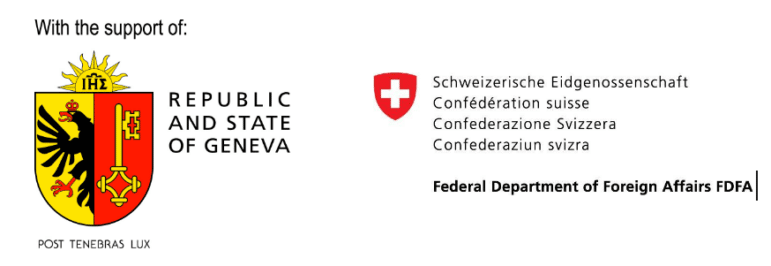
Thank you to our sponsors and collaborators!
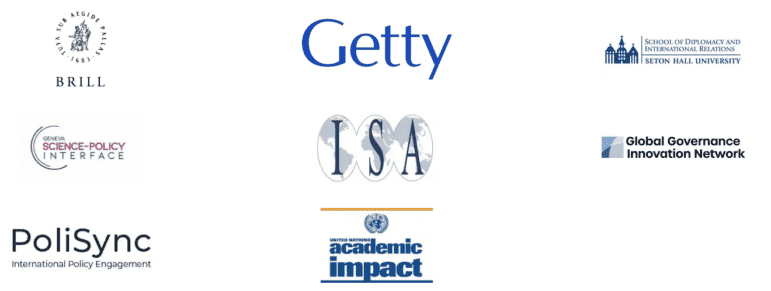
We are pleased to announce that there will be NO conference registration fees thanks to the generous support of our sponsors.
If you wish to attend the 2022 Annual Meeting in person, we encourage you to check the visa requirements for entering Switzerland and to apply for the necessary visa as soon as possible. ACUNS can provide a letter confirming your participation in the Annual Meeting; if you need such a letter please contact annualmeeting@acuns.org.
If you cannot attend in person, you will be able to indicate on the conference registration form that you wish to participate virtually.
In addition, scholars from the Global South can indicate on the registration form if they would like to apply for subsidized travel to attend the Annual Meeting in person.
The Annual Meeting team has blocked rooms at reduced rates at four hotels in Geneva conveniently located near to the conference venues. Please see the details below on how to make your reservations. To take advantage of the discounted rates you must make a reservation by Friday, 29 April 2022; any reservation after this deadline can only be made directly with hotels at their regular rates.
Hotel Royal Superior****
Address: rue de Lausanne 41-43, 1201 Geneva
Reservation: Click here to make the reservation online.
Rooms:
60 STANDARD ROOMS:
CHF 205.- per room and per night, in single occupancy
CHF 225.- per room and per night, in double occupancy
Note: Buffet breakfast INCLUDED. City tax CHF 3.75 per person and per day NOT Included.
Hotel Auteuil****
Address: rue de Lausanne 33, 1201 Geneva
Reservation: Click here to make the reservation online.
Rooms:
40 STANDARD ROOMS:
CHF 205.- per room and per night, in single occupancy
CHF 225.- per room and per night, in double occupancy
Note: Buffet breakfast INCLUDED. City tax CHF 3.75 per person and per day NOT Included.
Hotel Mon Repos***
Address: rue de Lausanne 131, 1202 Genève
Reservation: Complete the form accessible here and submit it by email to reservations@hmrge.ch.
Rooms:
15 COMFORT ROOMS: CHF 183.00 per night & per room
12 SUPERIOR ROOMS: CHF 210.00 per night & per room
26 SUPERIOR ROOMS (super king size bed): CHF 220.00 per night & per room
02 DOUBLE EXECUTIVE ROOMS: CHF 242.00 per night & per room
05 JUNIOR SUITES: CHF 278.00 per night & per room
Note: Buffet breakfast NOT Included. City tax CHF 3.75 per person and per day NOT Included.
Hotel Eden***
Address: rue de Lausanne 135, 1202 Genève
Reservation: Submit an email containing information about your name/preferred room type/credit card details, with a reference to “ACUNS 2022” in the subject box to eden@eden.ch.
Rooms:
10 SINGLE ROOMS:
CHF 185 per night & per room (23-24.06.2022)
CHF 150 per night & per room (24-26.06.2022, weekend rate)
10 DOUBLE ROOMS:
CHF 210 per night & per room (23-24.06.2022)
CHF 175 per night & per room (24-26.06.2022, weekend rate)
Note: Buffet breakfast INCLUDED. City tax CHF 3.75 per person and per day NOT Included.
Thanks to the generous support of ACUNS sponsors, scholars from the Global South will be provided with a subsidy to reduce their travel costs if they plan to attend the Annual Meeting in person. When registering for the conference, individuals can indicate whether they would like to apply for this support.
If you have opted to present a policy brief at the Annual Meeting and are an ACUNS member, you can indicate in the registration form if you wish to attend a pre-conference workshop on how to prepare a policy brief. Become an ACUNS member to take advantage of this opportunity. Further information will be forthcoming.
ACUNS welcomes the submission of abstracts that propose papers, policy briefs and research-policy tools from scholars, students, researchers, and UN staff and delegates. ACUNS will not be able to accept all submissions, and we therefore encourage applicants to polish submissions and ensure they are relevant to the 2022 Annual Meeting theme and categories of submission. When forming panels, participants are encouraged to ensure diversity in all of its forms, with particular attention to geography and gender.
Submissions can be made under one of the following three thematic categories:
Existing, new, and intensifying global challenges
Including submissions on the UN’s work relating to security; peacekeeping; sustainable development; climate change/environmental protection; migration; health; labour; education; humanitarian response/aid; intellectual property; digital cooperation; mediation; trade, gender; miss-information; data; or other global challenges.
UN organisation, structure, and processes
Submissions relating to the design and effectiveness of international organizations; UN reform; financing the UN; principal-agent models; engagement with/influence of non-state actors; headquarters/regional/country level coordination; agenda setting at the UN; negotiation of agreements/standards/normative frameworks; implementation or agreements/normative frameworks (including country-level policy design); monitoring and evaluation; or related topics.
Cross-cutting UN frameworks
Submissions relating to current/past/proposed UN frameworks that cut across the UN system, such as Our Common Agenda; the 2030 Agenda for Sustainable Development and the SDGs; or others.
Submissions can be made in one of the following four formats:
Individual Papers
Individuals can propose to present their research findings in a 4-6-page policy brief or a longer research paper. To do so, they should submit an abstract of up to 1,500 characters, indicating whether they will submit a policy brief or longer paper. The Annual Meeting Programme Committee will form panels of four selected policy briefs/papers that address related topics.
Full Panels
Individuals can propose a fully-formed panel session, including four papers, one discussant, and one chair. The papers to be presented can be 4-6-page policy briefs, or a longer research papers. One individual must submit all panel details, including a panel abstract describing the overarching theme uniting the papers (up to 1,500 characters). With the panellists’ permission, the same individual should provide the titles and abstracts of each individual paper, and information about each panelist.
Thematic or Book Roundtables
Individuals can propose a fully-formed roundtable to discuss and debate conference themes or recently published books. Participants agree in advance on the topic that will be the focus of the session. One individual must submit a session title and abstract (up to 1,500 characters) as well as information about each participant. Roundtables may include between four and six participants, one of whom should serve as Chair.
Research-Policy Tools and Initiatives
Individuals and organizations can propose to showcase an innovative digital tool, mechanism or initiative that was designed to facilitate research-policy collaborations and research uptake among UN staff and delegates. Those selected will be on display during the Annual Meeting, and at least one author of the tool or initiative will be given 20-minutes to present their tool and answer questions in the ‘demo room.’
Panel or Roundtable Chairs are responsible for facilitating rich research-policy discussions and debate among panelists and between panelists and the audience. They are also responsible for keeping time, and managing audience questions. For roundtables, they should also present the discussion theme and facilitate the debate. Every panel and roundtable must have a Chair.
Paper Authors should present their research findings in approximately 10 minutes on their panel. Authors are asked to submit their paper to the designated panel discussant at least one week before the date of their presentation.
Panel Discussants are responsible for reading the panel papers and for providing feedback during the panel. Discussants should receive papers at least one week ahead of the panel date.
Roundtable Participants should provide expertise on a specific theme or recently published book.
Authors of Research-Policy Tools and Initiatives should present their tool or initiative in approximately 10 minutes, and be available to answer questions for another ten minutes. Their tool or initiative can remain on display in the ‘demo room’ at different times throughout the conference.
ACUNS will continue to monitor the ongoing COVID-19 pandemic, and will follow local health regulations and guidelines. Even if in-person meetings are possible in Geneva during June 2022, we anticipate continuing travel challenges for some participants. We will therefore run our plenary sessions and some panel and roundtable sessions in a hybrid format, allowing panelists and participants for those sessions to connect remotely.
Increasing Accessibility
To encourage fruitful research-policy discussions, we are encouraging participants to submit their research findings in a 4-6-page policy brief/research memo format. In the lead up to the Annual Meeting, ACUNS will offer its members the opportunity to attend a workshop on ‘Communicating research results in policy circles.’ At the workshop, participants can learn how to prepare a policy brief, and pick up other useful policy communication tips. A selection of policy briefs presented at the 2022 Annual Meeting will be peer-reviewed and compiled into an edited digital volume on “Evidence-based solutions for intensifying global challenges,” to be published before the end of 2022 and made accessible on the ACUNS website. Those who prefer to present their research findings in a longer research paper format can do so. Become an ACUNS member or find out more.
Ensuring Diversity
ACUNS is committed to ensuring diversity in all of its forms, including ensuring access to ACUNS’ activities for scholars from the Global South. For the latter, ACUNS is currently seeking funds to cover the travel and accommodation for up to 50 scholars from the Global South so that they can attend the Annual Meeting in person (COVID-19 health guidelines/regulations permitting).
To benefit from ACUNS’ ongoing activities and offerings, such as being able to attend the pre-Annual Meeting policy skills workshops, we encourage scholars, students and UN staff and delegates to become full ACUNS members. Member benefits include:
- Electronic access to peer-reviewed journal Global Governance
- Opportunities to post your research news/activities in ACUNS’ Monthly Bulletin
- Opportunities to obtain accreditation for UN events
- Opportunities to participate in activities of the Global Governance Innovation Network
- Opportunity to apply for the UN Sabbatical Leave Programme, and to provide expertise when UN bodies contact ACUNS with special requests for assistance or insights
ACUNS was created more than 30 years ago to unite scholars and practitioners active in the work and study of the UN to better understand and address major global problems. The ACUNS Annual Meeting is one of its core activities, built on the premise that solutions to improve the human condition are more likely to advance through evidence-based analyses, international legal agreements and multilateral action. ACUNS’ activities foster research uptake and science-policy collaboration. ACUNS has a worldwide membership of some 500 individual members, dozens of institutional members, and a 5,000-strong online network, including leading scholars, students, policy researchers and UN staff and delegates working on UN-related issues. Each year, ACUNS co-organizes its Annual Meeting in partnership with a local host university. Read more.
For questions about the Annual Meeting, please contact ACUNS by email at annualmeeting@acuns.org.

